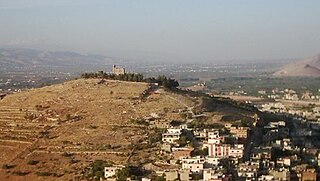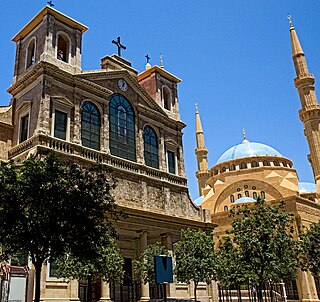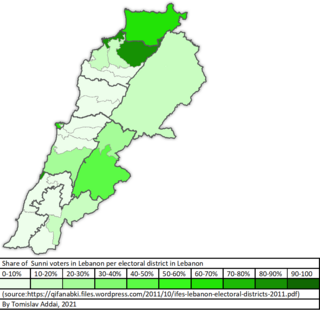
This is a demography of the population of Lebanon including population density, education level, health of the populace, economic status, religious affiliations and other aspects of the population.

The demographics of New Zealand encompass the gender, ethnic, religious, geographic, and economic backgrounds of the 5.1 million people living in New Zealand. New Zealanders predominantly live in urban areas on the North Island. The five largest cities are Auckland, Wellington, Christchurch, Hamilton, and Tauranga. Few New Zealanders live on New Zealand's smaller islands. Waiheke Island is easily the most populated smaller island with 9,420 residents, while Great Barrier Island, the Chatham and Pitt Islands, and Stewart Island each have populations below 1,000. New Zealand is part of a realm and most people born in the realm's external territories of Tokelau, the Ross Dependency, the Cook Islands and Niue are entitled to New Zealand passports.

Corbans Wines was one of New Zealand's oldest wineries, established in 1902 by Assid Abraham Corban, a Lebanese immigrant who had arrived in New Zealand ten years earlier. Corbans Wines grew to become the second largest producer of wine in New Zealand, until they were purchased by their largest competitor Montana Wines in 2000. Following several takeovers of Montana by Allied Domecq and then Pernod Ricard, the Corbans brand was spun off in 2011 and is now owned by Lion.

The Beqaa Valley, also transliterated as Bekaa, Biqâ, and Becaa and known in classical antiquity as Coele-Syria, is a fertile valley in eastern Lebanon. It is Lebanon's most important farming region. Industry also flourishes in Beqaa, especially that related to agriculture.

Lebanese Australians refers to citizens or permanent residents of Australia of Lebanese ancestry. The population is diverse, having a large Christian religious base, being mostly Maronite Catholics, while also having a large Muslim group of Sunni branch of Islam.

The Lebanese people are the people inhabiting or originating from Lebanon. The term may also include those who had inhabited Mount Lebanon and the Anti-Lebanon Mountains prior to the creation of the modern Lebanese state. The major religious groups among the Lebanese people within Lebanon are Shia Muslims (27%), Sunni Muslims (27%), Maronite Christians (21%), Greek Orthodox Christians (8%), Melkite Christians (5%), Druze (5.2%), Protestant Christians (1%). The largest contingent of Lebanese, however, comprise a diaspora in North America, South America, Europe, Australia and Africa, which is predominantly Maronite Christian.

Christianity in Lebanon has a long and continuous history. Biblical Scriptures show that Peter and Paul evangelized the Phoenicians, whom they affiliated to the ancient Patriarchate of Antioch. Christianity spread slowly in Lebanon due to pagans who resisted conversion, but it ultimately spread throughout the country. Even after centuries of Muslim rule, it remains the dominant faith of the Mount Lebanon region and has substantial communities elsewhere.
New Zealand Jews, whether by culture, ethnicity, or religion, form with Hawaii (8,000-10,000), the joint-second largest (7,500-10,000) Jewish community in Oceania, behind Australia (118,000).

Lebanon is an eastern Mediterranean country that has the most religiously diverse society within the Middle East, comprising 18 recognized religious sects. The religions are Islam and Christianity. The Druze concern around an estimate of 5% of the citizens in Lebanon.
Iraqi New Zealanders constitute a small population immigrants from Iraq and New Zealand-born people of Iraqi heritage or descent.

Christianity, which originated in the Middle East during the 1st century AD, is a significant minority religion within the region, characterized by the diversity of its beliefs and traditions, compared to Christianity in other parts of the Old World. Christians now make up approximately 5% of the Middle Eastern population, down from 13% in the early 20th century. Cyprus is the only Christian majority country in the Middle East, with Christians forming between 76% and 78% of the country's total population, most of them adhering to Eastern Orthodox Christianity. Lebanon has the second highest proportion of Christians in the Middle East, around 40%, predominantly Maronites. Egypt has the next largest proportion of Christians, at around 10% of its total population. Copts, numbering around 10 million, constitute the single largest Christian community in the Middle East.
Religion in Syria refers to the range of religions practiced by the citizens of Syria. Historically, the region has been a mosaic of diverse faiths with a range of different sects within each of these religious communities.

The Maronites are a Syriac Christian ethnoreligious group native to the Eastern Mediterranean and Levant region of West Asia, whose members traditionally belong to the Maronite Church, with the largest concentration long residing near Mount Lebanon in modern Lebanon. The Maronite Church is an Eastern Catholic sui iuris particular church in full communion with the pope and the rest of the Catholic Church.
Sectarianism can be defined as a practice that is created over a period of time through consistent social, cultural and political habits leading to the formation of group solidarity that is dependent upon practices of inclusion and exclusion. Sectarian discrimination focuses on the exclusion aspect of sectarianism and can be defined as 'hatred arising from attaching importance to perceived differences between subdivisions within a group', for example the different denominations of a religion or the factions of a political belief.
Assid Khaleel Corban was a New Zealand local-body politician and company director. He was the first Mayor of Waitakere City and previously Mayor of the Henderson Borough Council.
Assid Abraham Corban was a New Zealand pedlar, importer, viticulturist and wine-maker. He was born in Shweir, in the Mount Lebanon Mutasarrifate on 25 August 1864. He founded Corbans, now one of New Zealand's oldest and largest wineries.

Lebanese Sunni Muslims are Lebanese people who are adherents of the Sunni branch of Islam in Lebanon, which is one of the largest denomination in Lebanon tied with Shias. Sunni Islam in Lebanon has a history of more than a millennium. According to a CIA 2018 study, Lebanese Sunni Muslims constitute an estimated 30.6% of Lebanon's population.

The Syro-Lebanese of Egypt, also known as Levantine-Egyptians or Syro-Egyptians, are an ethnic minority group in Egypt. They are Egyptians who have ancestry originating from the Levant, mostly what is now Syria and Lebanon, but also including those from Palestine. The majority of Egypt's historic Syro-Lebanese community is Christian, mainly Eastern Catholic and Eastern Orthodox.
Arab New Zealanders refers to people from Arab countries, particularly Lebanon, Syria, Palestine, Iraq, and Jordan and also small groups from Egypt, Algeria, Tunisia, Morocco, Libya, Yemen and Sudan, who emigrated from their native nations and currently reside in New Zealand. The term also refers to descendants of diasporic Arabians such as descendants of Arab merchants to Asian nations, whose ancestral origins may be traced to merchants hailing from the Southern Arabian nations such as Yemen and Oman and the Arab nations of the Persian gulf region. Most Arab New Zealanders are of Lebanese and Iraqi descent because they were the first Arabs to arrive in New Zealand. Therefore, an Arab New Zealander is a New Zealander of Arab cultural and linguistic heritage or identity whose ancestry traces back to any of various waves of immigrants originating from one or more of the twenty countries comprised by the Arab world.

Corban Estate Arts Centre is an arts precinct in West Auckland, New Zealand. Established in 2002 at the site of the Mt Lebanon Vineyard and Winery, the arts centre provides creative production, theatre and gallery space to New Zealand artists.














